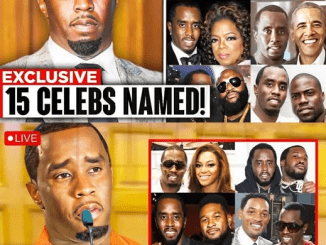Today, Mexico is experiencing a great controversy and crisis following the news that Ricardo Salinas Pliego, owner of TV Azteca, has decided to take drastic measures against those employees, including senior executives, who are related to the use of the so-called “woke language.” The Mexican magnate stated that this decision responds to the pressure of television viewers, who, through their demands, asked producers to abandon inclusive language in the media. This announcement has generated a strong debate about the future of television in the country and the standards of public communication.
The context of the controversy: Why was this decision taken?
According to Salinas Pliego, the reason for his decision lies in the comments and concerns of TV Azteca viewers, who have expressed their discontent with the use of inclusive language, or what he calls “woke language.” Through his social networks, the businessman commented:
“Let’s give our viewers the option to see something different, please, help me help!” with the clear objective of promoting a type of content that moves away from what he considers to be a language that could be alien to many.
In addition, Salinas Pliego stressed that being “different” in a context full of what he perceives as nonsense requires courage. According to him, this language cleansing is an urgent need to ensure that TV Azteca remains aligned with the demands of an audience that prefers a more traditional style of communication.

Salinas Pliego’s message on social media
In the document shared on social media, Salinas Pliego used an ironic tone to convey the nature of the lawsuit. He addressed TV Azteca producers with the following words:
“The viewers, through the owner of TV Azteca/Azteco, request that the news producers give instructions to their on-screen presenters… TO IMMEDIATELY STOP USING WOKE LANGUAGE.”
This comment not only ridiculed the use of inclusive language, but also expressed a firm stance on his rejection of what he considers an ideological trend that has invaded the media. Despite the seriousness of the situation, so far no public statements have been heard from the most popular hosts of the television station , such as Javier Alatorre, who has been the face of the news program “Hechos” since 1994, or from other presenters of star programs.
What is “woke language” and why is it controversial?
The term “woke” has been used in recent years to refer to a type of social and political awareness related to gender equality, diversity, and human rights. In its most basic definition, it refers to awareness and critical reflection on social injustices and structural inequalities that affect certain groups in society. However, the inclusion of this approach in the media and in everyday life has also generated strong reactions in some sectors, who consider it to be an ideological imposition that goes against traditions.
Salinas Pliego did not specify in detail what exactly she meant by the term “woke language” in her message, but her criticism was clear in ridiculing the use of inclusive expressions. These are phrases or words that seek to eliminate sexism and gender stereotypes in language. A clear example would be the use of “los estudiantes” instead of “los estudiantes,” or “presidenta” instead of “presidente” if a woman holds that position. According to the Mexican government, inclusive language aims to eradicate expressions that perpetuate the idea of women’s inferiority and reinforce stereotypes that exclude certain groups in society.
Reactions and perspectives on the future of language in the media
This event marks a critical point in the debate over inclusive language and freedom of expression in Mexico’s media. For some, Salinas Pliego’s decision reflects a conservative stance that seeks to reestablish traditional norms in the media, while for others, it is a blow to progress toward more inclusive and representative communication.
It is important to note that the implementation of inclusive language has been promoted by various feminist organizations and human rights defenders as a necessary tool to achieve a more egalitarian society. However, not everyone shares this approach, and the debate continues to be a polarizing issue in various sectors of Mexican society.
Conclusion: What can we expect?
The situation at TV Azteca highlights one of the most profound discussions about identity, social values and freedom of expression in public communication. As the country faces this media crisis, the question remains: how to find a balance between the evolution of language to include all social groups without imposing a model that is not accepted by all? Only time will tell if this controversy will be a turning point in Mexican media or if it will be resolved in a broader debate about plurality in expression.


